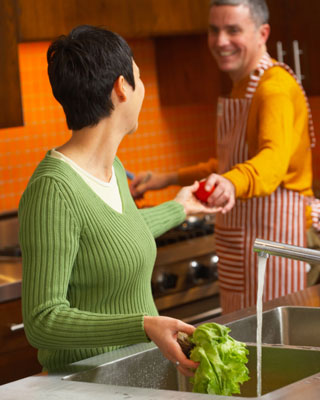 During your chemotherapy treatment, you may have a poor appetite or not feel up to eating. But you should try and eat what you can because good nutrition can help give your body the strength it needs to repair itself. It is also important to drink plenty of fluids throughout the day to stay hydrated.
During your chemotherapy treatment, you may have a poor appetite or not feel up to eating. But you should try and eat what you can because good nutrition can help give your body the strength it needs to repair itself. It is also important to drink plenty of fluids throughout the day to stay hydrated.
Because your cancer and chemotherapy may make it harder for your body to fight off infections, it is good practice to follow proper food preparation and handling techniques. Most people follow these anyway, but they are really important at this time.
There are a number of things that can be done in the kitchen to lower your chances of getting sick from the food that you eat:
- Wash your hands with soap and water before handling food.
- Clean your countertops with a disinfectant, such as Lysol®.
- Rinse fruits and vegetables well to remove any germs, and peel them if necessary.
- Prepare raw meat and vegetables on different cooling surfaces.
- Thaw meat in the microwave or refrigerator.
- Clean any surfaces that you used to prepare meat well.
- Cook meat and eggs all the way through to kill any germs.
- Refrigerate leftovers promptly to prevent germs from growing.
- Eat refrigerated leftovers within 24 hours of preparation.

 "I never thought seriously about the risk of infection until I was hospitalized and unable to fight a fever. It’s so important to understand what steps you can take to help protect yourself."Breast Cancer Survivor
"I never thought seriously about the risk of infection until I was hospitalized and unable to fight a fever. It’s so important to understand what steps you can take to help protect yourself."Breast Cancer Survivor 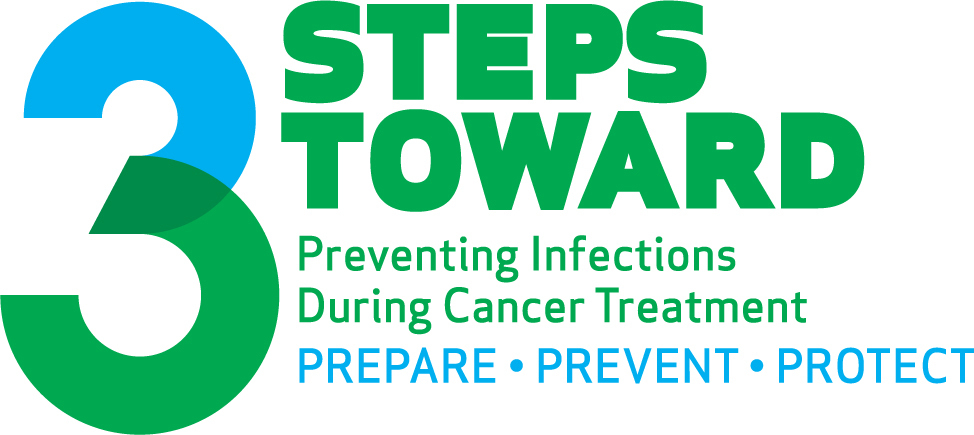

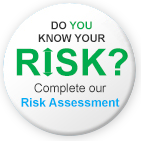
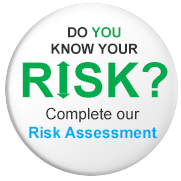

 During your chemotherapy treatment, you may have a poor appetite or not feel up to eating. But you should try and eat what you can because good nutrition can help give your body the strength it needs to repair itself. It is also important to drink plenty of fluids throughout the day to stay hydrated.
During your chemotherapy treatment, you may have a poor appetite or not feel up to eating. But you should try and eat what you can because good nutrition can help give your body the strength it needs to repair itself. It is also important to drink plenty of fluids throughout the day to stay hydrated.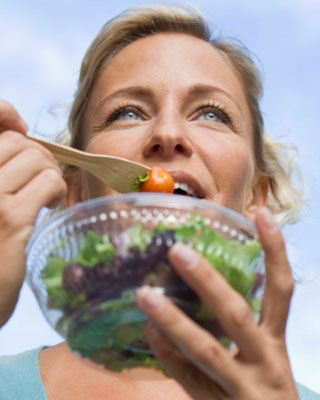 Just as there are things you need to keep in mind when preparing your food, there are things that you need to be aware of when choosing the types of food you plan to eat. Remember that your cancer, or the medicine that you are taking to treat your cancer, may increase your risk for infection.
Just as there are things you need to keep in mind when preparing your food, there are things that you need to be aware of when choosing the types of food you plan to eat. Remember that your cancer, or the medicine that you are taking to treat your cancer, may increase your risk for infection.